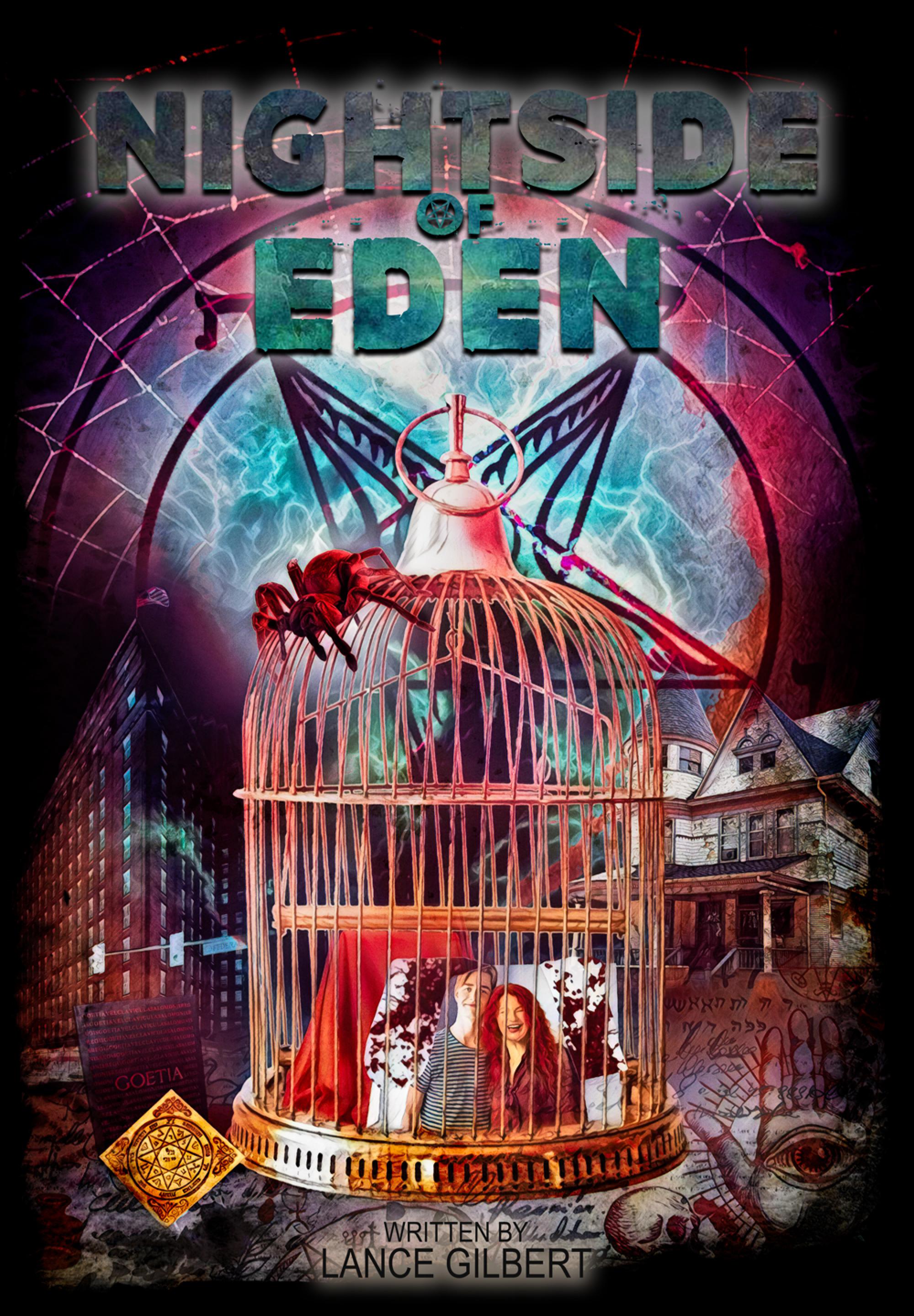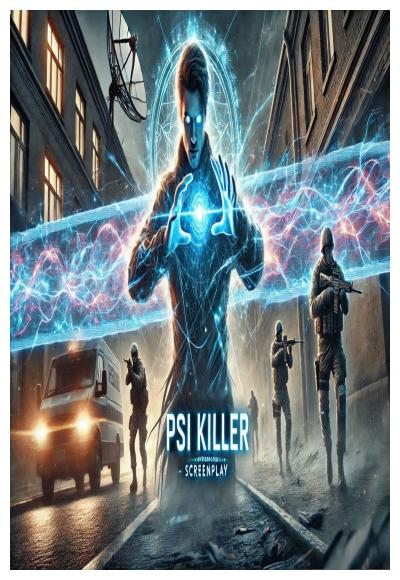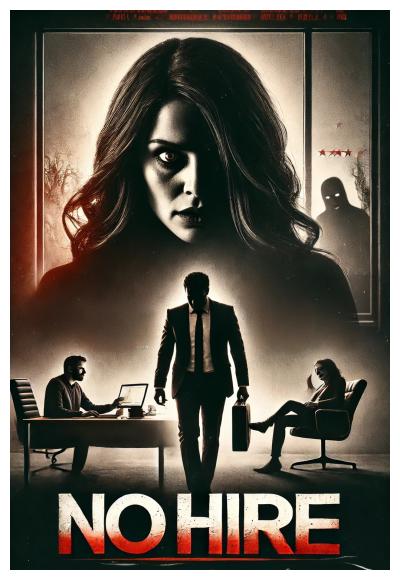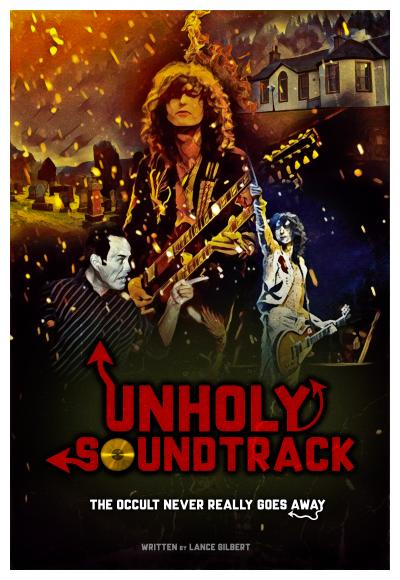
Synopsis/Details
All Accolades & Coverage
Coverage from WeScreenplay:
OPENING THOUGHTS
I really enjoyed reading Nightside of Eden – well, enjoy might not be the best word to describe the
anxiety and the fear and the trepidation and the excitement I felt as I read (). On the title page you
indicate Nightside of Eden is based on your Tale of Demon Conjuring, Mind Control, and Madness, and in
your note to the reader you state it is based on the first two chapters. You have successfully translated
prose into a screenplay. This is not as easy at it would appear to be. All of the elements for a terrifying
horror story are in place here. I pondered how the notes could serve you best, and I decided to point
out the places where I was confused, where the flow stopped, where there was a bump, or where it’s
just wonderful.
CHARACTERS
The characters are interesting, compelling and flawed. You made a smart choice to have the number
of characters to tell this story. Any more characters would complicate and confuse the story. In other
words, these are just the right amount of characters. We like Alex. We care about Alex. And we want
Alex to win. We want Alex to find his mother and survive the horror he is stepping toward and into. The
ending is fulfilling: A Man moves into Alex’s old place and places a birdcage in the same place as Alex’s
birdcage. Ah… the story continues… And then we realize Eden has died, which completes Alex’s
search. A little bird lands on the sill of his new home and he invokes his name. Ah… the story
continues… Very good.
On Page 36 Alex says to Anthony: “She’s really nice. Doesn’t need my baggage, too.” This is a great
dialogue because it reveals Alex’s vulnerability, he wants and needs, and his trust in Anthony. And
Jeff’s confession about realizing there is no God or Devil is another great reveal showing his
character’s vulnerability. We understand both of these characters so much more because of this
dialogue. What makes this dialogue even more compelling is that both Kay and Jeff die so brutally.
You do something really interesting here: You present these characters in a way where not quite sure
about them – do we like them, do we trust them – and then you begin to make us care about them
and the wham! you kill them off. This is very good storytelling and creating character arcs. Excellent!
This is a minor note: On Page 42 who snaps out of it and runs to the desk?
The development of the shadow and the woman with the red hair and conclave breasts is one of the
strongest elements. The mystery and fascination for this character continues to build and build. We
are frightened by her, but intrigued. Our engagement with her deepens as she reveals her identity to
Alex. The sustained tension within this development is expertly achieved.
On Page 49 Alex calls his grandmother. This is the only time (as far as I could tell) he calls and talks to
his grandmother. We wonder why he is calling her now, and why he doesn’t call her again. There might
be an opportunity to develop the grandmother’s character and her relationship with Alex. There might
be an opportunity to develop Carrie’s character a little more, too. The angel tats on her shoulders are
intriguing. There is the sense she is a positive force in the universe, especially in Alex’s world. And he
definitely needs an angel’s presence. You might consider taking a look at Carrie’s character to see if
and how she might have more screen time.
PLOT
On Page 9 Detex is introduced. Alex asks Joseph if he knows about the Detex. Joseph shakes his head
no. Alex tells him that he will show him later. This just might be me, but I don’t understand Detex’s
function. What does Alex mean when he says – “But when it gets microwaved, there’s no patrol”? It
may not be important for us to understand other than Detex beeps and it is important to Alex and the
other employees. But you might consider taking another look to see if Detex’s function could use a
little more clarification.
On Page 12 Anthony tracks something and then there is a smash and he wipes the side of his hand.
This is a little obscure. We wonder if this could be clarified a little more so we can envision what you
envision here.
Page 13: It is excellent when Alex finds the phrase “find missing loved ones” in the book. His need is
clearly stated now. We know what he needs, and this invites us to engage even more in the story. The
stakes are raised the story moves forward, which is a perfect place for this to happen.
On Page 23 Alex asks the Clerk if the bookstore has any books on contacting spirits. The Clerk sends
him to Seven Stars where he meets Carrie and finds the books that will set him on this terrifying
journey. We wonder what would happen if this scene at the Seven Stars bookstore happened earlier
not much, just a little bit. Would this happening earlier create more dramatic tension within the story?
The tempo in the first 25 pages works, but we become anxious and desire the tempo to pick up ever so
slightly. This might be an individual thing, but you might consider taking a look to see how moving
Alex entering Seven Stars a tad bit earlier could tighten the story and create tension.
This is a minor note: Alex sleeps on a couch in the Law Library one time. We wonder why he doesn’t
sleep there more often – perhaps it is because of the dream/vision he has. But then, there might be an
opportunity to develop what he dreams/visions in the Law Library.
STRUCTURE
The opening sequence establishes a great mood. We know we are entering another world where the
mundane rules do not apply. We know we are entering a world where danger lurks in every corner.
And you sustain this mood throughout, which is good writing.
This is a minor note: On Page 3 the Newscaster announces Kurt Cobain has died. We wonder if stating
the year this story takes place would help frame the context of the time period. Some of us know when
Kurt Cobain died, but some may not know. But knowing the year might help us place the story in
history.
You use time in a very interesting way. On Page 12 “all hands on the clock behind him are at 12.” The
fact that “all hands” are on twelve draws our focus to this fact. We sense foreboding and the
importance of the number twelve. We don’t know what this importance is, but we are on alert and in
search of more clues. Your use of the ticking clock throughout is really well done; and in a horror story
the countdown to doom is crucial to keeping the dramatic tension alive and well on the page and
inside the audience’s gut.
The black mold motif is really well developed. The black mold begins as specks. Alex doesn’t see the
black mold, but we sure do! The progression of the black mold helps structure the story in an
intriguing and compelling way. We know that this black mold is an important and crucial element, and
we wait with anticipation to see how it develops and unfolds. And the black mold does not disappoint!
DIALOGUE
I was a bit confused by the character Voice; I wasn’t sure if Voice is the same character throughout or if
a couple of different characters are designated with the name Voice. For example, on Page 1 Voice
says: “Spectare! …. Ede Jacobs?” On Page 2 Voice says off camera: “Dude, I’m comin’ in. …. ok?” On
Page 23 Voice calls from the back of Seven Stars: “Carrie! The Weiser invoice?” On Page 56 Whispered
Voice says off camera: “Youuuuu…” On Page 72 Voice says in voice over: “Ale-x … plea-se … hel-p.”
And then on Page 87 Voice says: “Strange men fucked me in front of you while I was drugged up. …
Pity.” This last dialogue spoken by Voice reveals so much information about Alex and his mother and
what happened in the past without sounding expositional – it’s wonderful dialogue. But having said
that, you might consider going back to see if the use of Voice for the character’s name serves the story
in the way you want it to. If any of these lines of dialogue is not spoken by the same character, you
might want to give that line of dialogue another character name so there is no confusion. Having said
all of that, you are doing something very interesting with the voices. Sometimes we don’t know if the
voice is human or supernatural, which works. But at the same time, this is a screenplay, a blueprint for
a movie, which means clarity trumps confusion.
CONCEPT
The concept of a young man conjuring the other side with the hopes of finding his missing mother is a
perfect vessel for the horror genre. In a way this is a coming of age story and a love story between a
son and his mother. But Nightside of Eden takes these rather common themes and pushes them to the
edge, and then pushes them some more. There are some moments we want to look away from what is
happening on the page because we fear what is happening on the page. That is terrific writing and
storytelling. Your relationship to language enables you to use the screenwriting language uniquely.
Weaving a staccato rhythm with a more mundane rhythm throughout the narrative/action adds
another layer and element to the story and the horror elements. The title is wonderful. There is the
feeling of wonder and mystery, and almost a holiness surrounding the name Eden. Yet nightside
conjures another feeling of doom and danger. Alex evokes his mother’s name on the first page, but we
don’t quite associate Eden Jacobs with Alex, not yet, anyway. But then on Page 43 he asks the female
with the breasts scooped out where is Eden Jacobs – and it is at this moment we connect his mother
to the title. This works really well; it is actually one of the most poignant moments in the script.
FINAL THOUGHTS
We wonder what the other chapters of your prose might hold for more horror stories. The script is very
good shape. Just a little tweaking here and there, and a little more clarification or specifics would help
the screenplay shine even more. Good luck with this project. It has legs.




